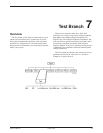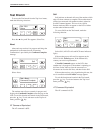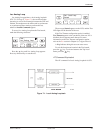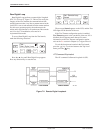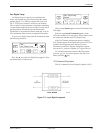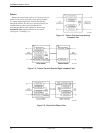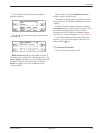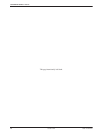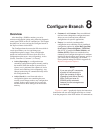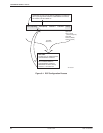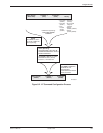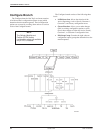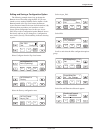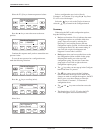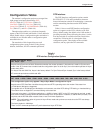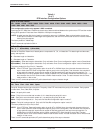
8-13980-A2-GB30-40 October 1998
Configure Branch
Overview
After installing a 3800Plus modem, you set its
software configuration options using either the diagnostic
control panel (DCP) or the AT command set. This chapter
describes how to access and use the Configure branch of
the Top-Level menu via the DCP.
The Configure branch accesses the Edit Area which is
a work space where you view and change any
configuration options (straps). These configuration
options are loaded to the Edit Area from one of five
configuration option areas: Active (Operating), Active
(Saved), Customer 1, Customer 2, or Factory.
• Active (Operating) is a configuration area
containing configuration options currently used by
the modem. When the modem is powered on or
when a save is performed, the contents of Active
(Saved) are loaded into Active (Operating). Any
changes made using AT commands directly affect
this configuration area.
• Active (Saved) is a read from and write to
configuration option area containing the most
recently saved changes made to any configuration
options. In the event of power loss or reset, the
modem retrieves these settings from nonvolatile
memory.
• Customer 1 and Customer 2 are two additional
read and write (changeable) configuration areas
where you can create and store additional
configurations for specific applications.
• Factory is a read-only (unchangeable)
configuration area containing sets of predefined
configuration options for Async Dial, Sync Dial,
Sync Leased (Answer/Originate), UNIX Dial,
and (if ETC is installed) Cellular (Mobile), and
Cellular (PSTN). These sets contain the most
commonly used configuration options for modems
installed in these hardware environments, and give
you a head start in configuring your modem.
Factory default settings are listed in Appendix G,
Default Configuration Options.
NOTE
If you are using AT commands,
a period of time can exist in
which the contents of Active
(Operating) and Active (Saved)
differ. Once you issue an
AT&W0 (write) command,
however, the two storage areas
are identical.
Figures 8-1 and 8-2 graphically display the interaction
between the edit area and configuration areas as viewed
from the perspective of the DCP and the AT command set.
8



